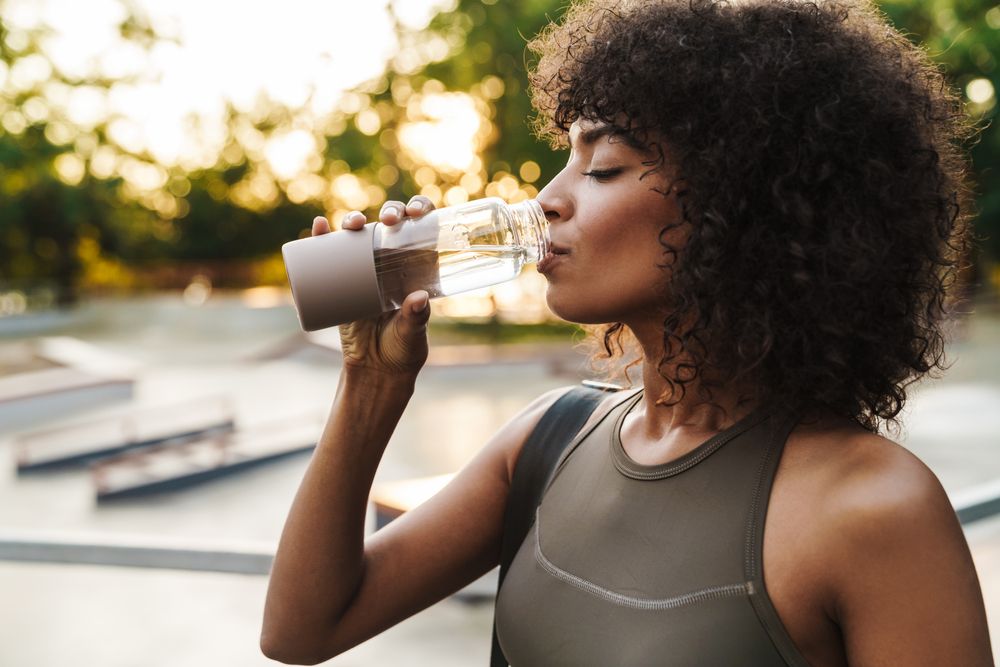It's well-known that the winter season often brings more indoor time, reduced physical activity, and an increased susceptibility to catching colds. However, what may come as a surprise is that a simple and essential daily habit can help combat the winter blues: drinking more water. During the colder months, you might find yourself feeling dehydrated, partly due to indoor heating systems. But don't worry, we've got you covered. Eat This, Not That! spoke to an expert who has provided 10 compelling reasons why increasing your water intake in winter is a smart move. So, grab your glass and get ready to stay hydrated.
We understand that reaching for a water bottle might not be your top priority when you're tempted by hot cocoa and cozy evenings by the fireplace. Nevertheless, maintaining proper hydration is even more critical during the upcoming chilly season. That's why we turned to Caroline Young, RD, a registered dietitian and the owner of Whole Self Nutrition, who shares 10 compelling reasons why you should up your water intake in the winter.
1) Lower Temperatures Can Lead to Dry Skin

The cold and dry air of winter can strip moisture from our skin, leading to dryness and itching. Fortunately, increasing your water intake can combat this issue.
According to Young, "Colder temperatures often result in drier skin. Drinking an adequate amount of water can internally hydrate your skin and prevent the unpleasant consequences of dry skin, such as cracking, discomfort, itchiness, irritation, and more.
2) Water Aids in the Regulation of Body Temperature

Maintaining sufficient water intake during winter is crucial for regulating your body's temperature and preventing hypothermia," notes Young. Staying well-hydrated enhances your body's thermoregulation capabilities, allowing you to adapt more effectively to colder weather and maintain a comfortable warmth.
3) Heat Inside Dehydrates You More than Heat Outside
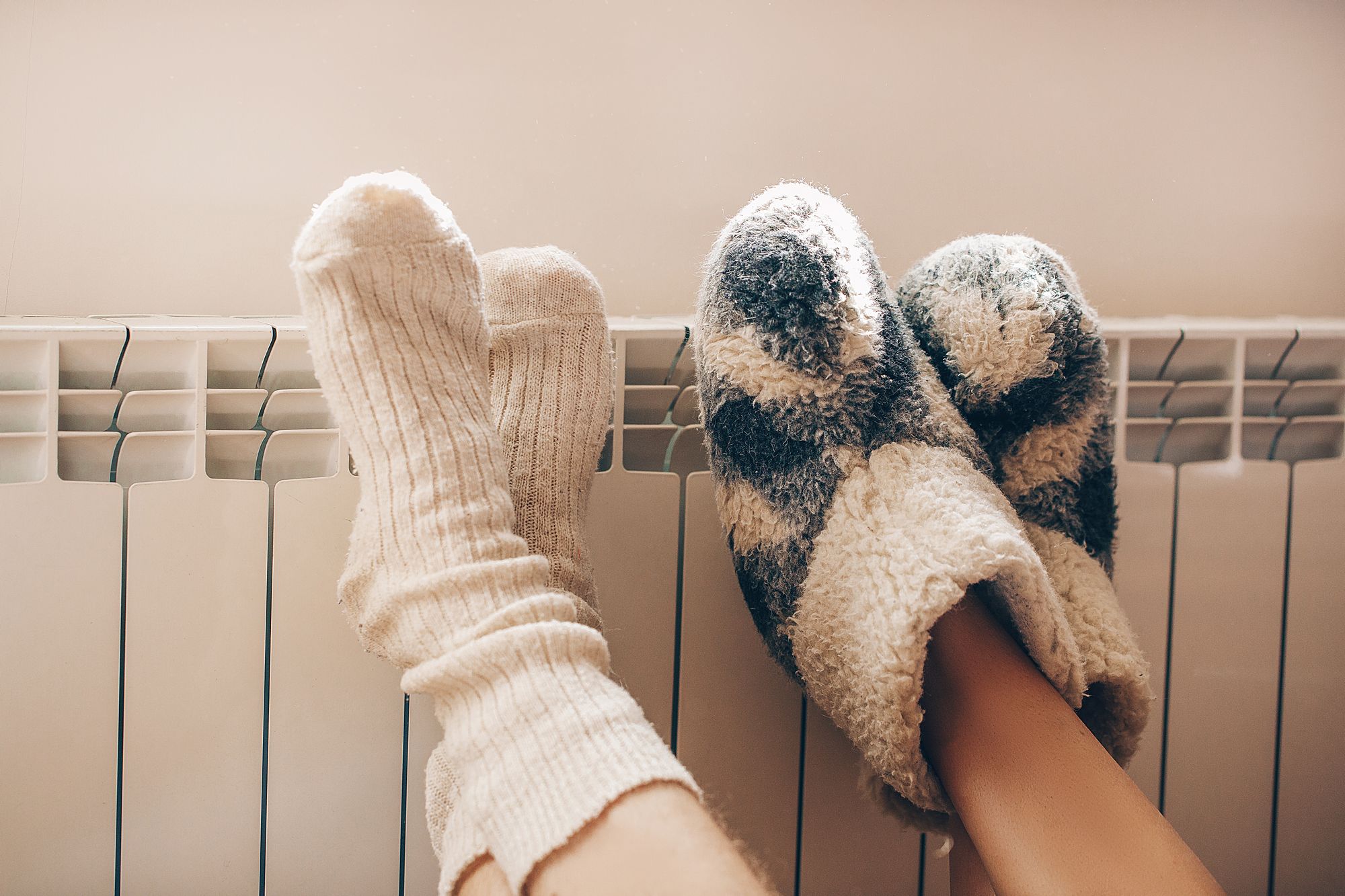
While the outdoor air can be cold and dry during winter, indoor heating systems can worsen dehydration. Artificial heating leads to dry indoor environments, which in turn result in increased water loss through respiration and skin evaporation. Therefore, it becomes crucial to drink more water to combat the dehydrating impact of indoor heating during the winter months.
4) Staying Hydrated Aids in Weight Loss During the Winter

During the less active winter months, it's common to put on a few extra pounds. However, dehydration can sometimes be misinterpreted as hunger, leading to overeating. Staying adequately hydrated can assist in controlling your appetite, minimizing cravings, and enhancing your body's capacity to differentiate between thirst and hunger.
5) In colder Climates, Your Body Needs More Water to Breathe

In colder temperatures, your respiratory system operates more strenuously, necessitating an increased intake of water. Furthermore, the dry and cold air can be harsh on your lungs, and maintaining proper hydration helps protect the mucous membranes in your respiratory tract.
6) When the Weather Gets Warmer, You Become Less Aware of How Much You Perspire

Even in the cold temperatures of winter, your body continues to perspire, although it may be less noticeable than in warmer weather. Consequently, when you're wrapped up warmly outdoors, you might not be aware of the extent of your perspiration and the fluids you're losing.
According to Young, "We should be drinking more water than we might think, especially when exercising in cold weather, as we tend to sweat more than we realize, but it evaporates quickly. We should hydrate with fluids (and consider electrolytes if engaging in intense exercise or activities lasting over an hour) just as we would during warmer months.
7) In Colder Environments, Your Immune System Tends to be Less Robust
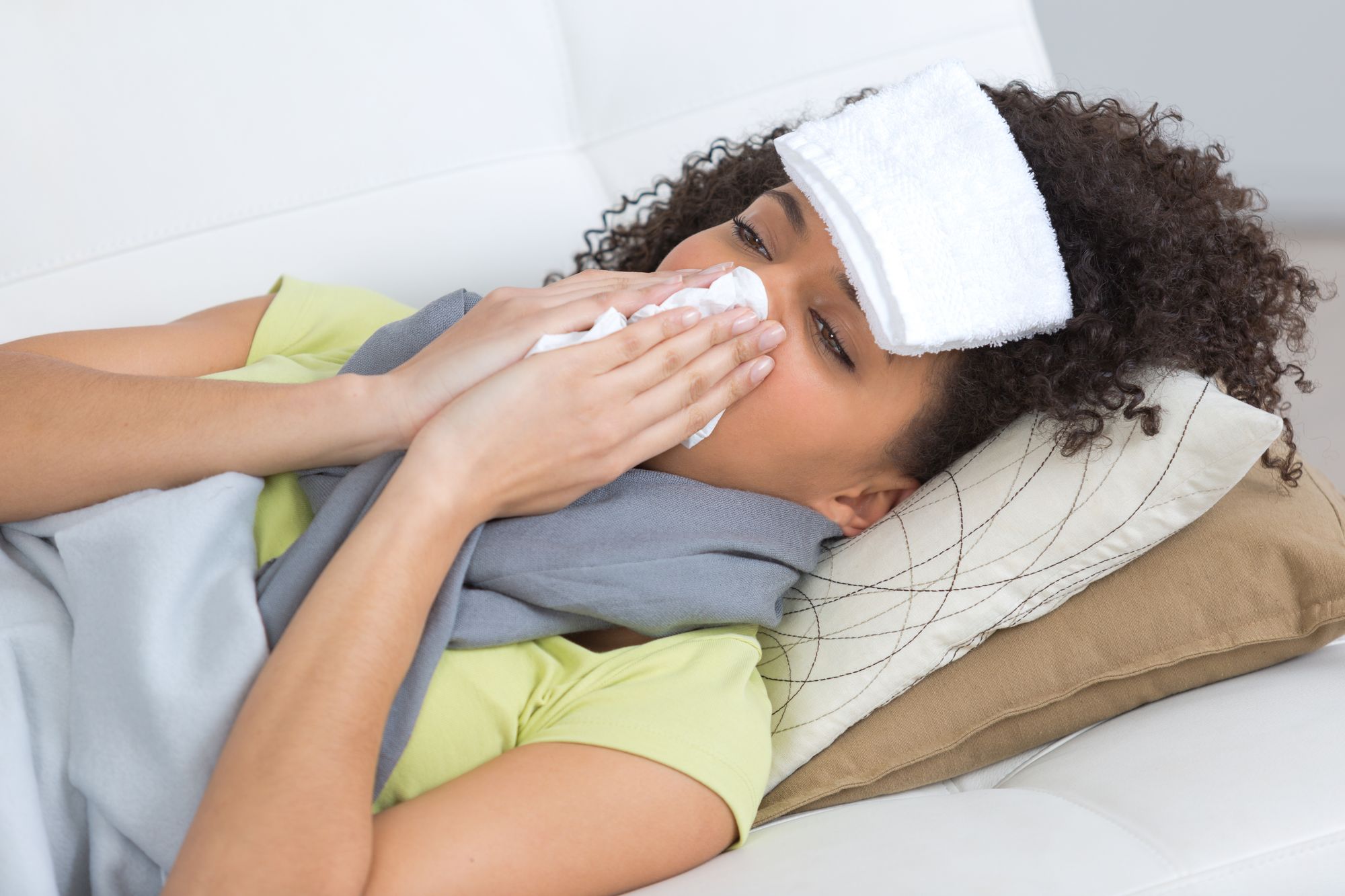
During winter, cold and flu season becomes more prevalent. However, increasing your water intake can promote a healthy immune system by enhancing the production and mobility of immune cells.
8) In Colder Weather, You May Find Yourself Urinating More Frequently
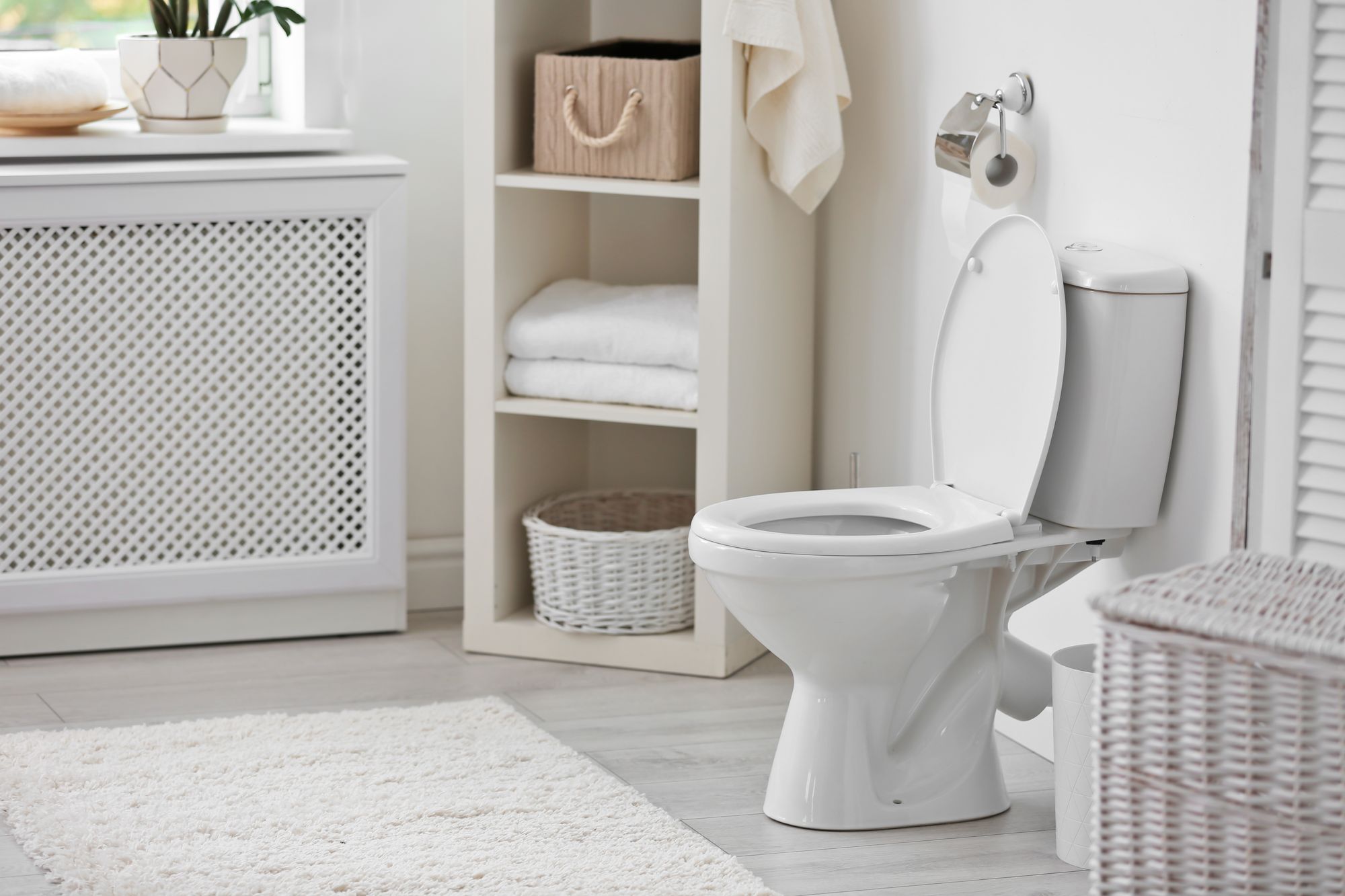
It's not unusual to experience increased urination during the winter months compared to other seasons. According to Young, "Cold environments can stimulate the kidneys to expel more urine than usual, highlighting the importance of staying hydrated to prevent dehydration.
9) Drinking Water Helps Balance Electrolytes
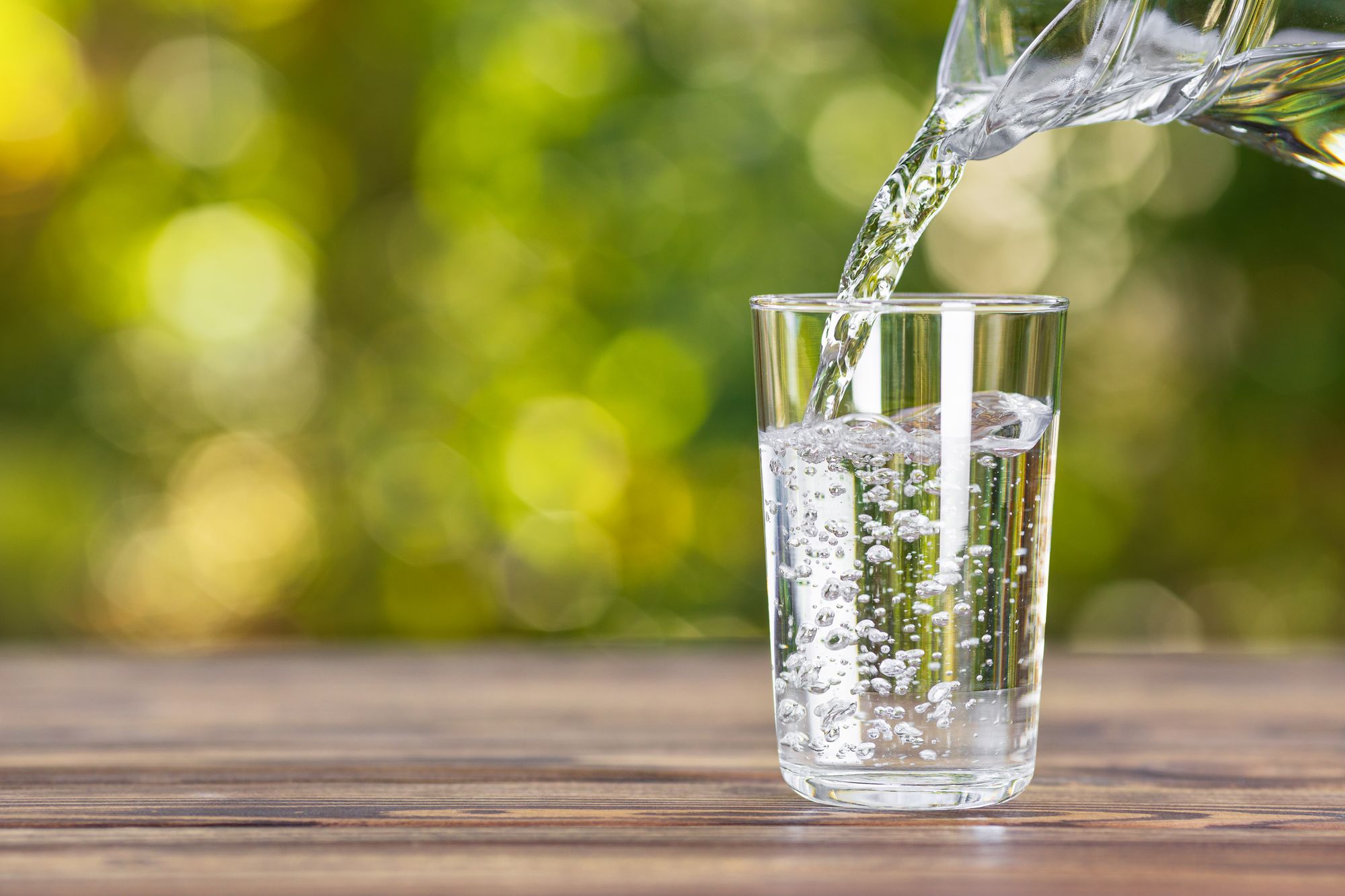
Studies indicate that maintaining adequate hydration is crucial for preserving electrolyte balance, even in colder conditions. Despite the common belief that dehydration is primarily a concern in warmer seasons, it can also affect electrolyte levels in cold weather. Consistent water intake is essential to help maintain a healthy equilibrium of electrolytes, promoting optimal nerve and muscle function.
10) In the winter, Your Body Loses More Water

In the winter, your body faces elevated moisture loss due to the dry indoor air. This process occurs through respiration and skin evaporation, underscoring the importance of replenishing lost fluids by increasing your water consumption.
Caroline Young, RD, emphasizes, "Bodily water loss can escalate during the winter months because indoor environments are typically warmer and drier than the outdoors, which raises our fluid requirements."

